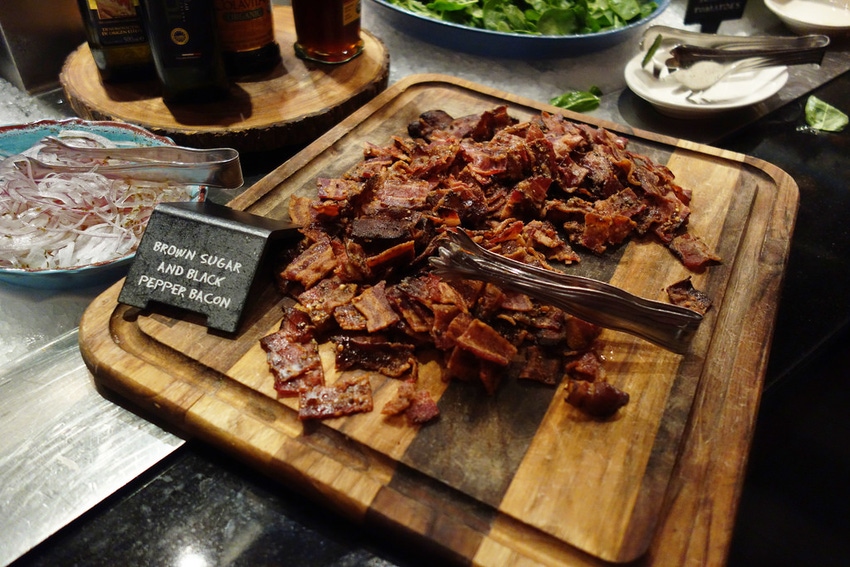Rejections since March have increased by 11%.

Citing recurring concerns about the safety of the products intended for the American market, Secretary of Agriculture Sonny Perdue announced June 22 the suspension of all imports of fresh beef from Brazil. The suspension of shipments will remain in place until Brazil's Ministry of Agriculture takes corrective action to the satisfaction of the U.S. Department of Agriculture.
Since March, USDA's Food Safety & Inspection Service (FSIS) has been inspecting 100% of all meat products arriving in the U.S. from Brazil. FSIS has refused entry to 11% of Brazilian fresh beef products. That figure is substantially higher than the rejection rate of 1% of shipments from the rest of the world. Since implementation of the increased inspection, FSIS has refused entry to 106 lots (approximately 1.9 million lb.) of Brazilian beef products due to public health concerns, sanitary conditions and animal health issues.
It is important to note that none of the rejected lots made it into the U.S. market, USDA said.
Brazil's government had pledged to address those concerns, including by self-suspending five facilities from shipping beef to the U.S., but USDA's action to suspend all fresh beef shipments from Brazil supersedes the self-suspension.
“Ensuring the safety of our nation's food supply is one of our critical missions, and it's one we undertake with great seriousness,” Perdue said in a statement. “Although international trade is an important part of what we do at USDA, and Brazil has long been one of our partners, my first priority is to protect American consumers. That's what we've done by halting the import of Brazilian fresh beef. I commend the work of USDA's Food Safety & Inspection Service for painstakingly safeguarding the food we serve our families.”
The National Cattlemen's Beef Assn. (NCBA) released a statement saying it supports USDA's decision to protect the U.S. food supply by enacting the ban.
“NCBA supports the action taken by Secretary Perdue to suspend fresh beef imports from Brazil,” NCBA president Craig Uden said. “This action is the result of USDA's strong, science-based testing protocol of imported beef, and this proves that our food safety system works effectively. NCBA supports USDA's commitment to science-based trade and its commitment to keeping our food supply as safe as possible.”
R-CALF USA also hailed the ban but urged Purdue to halt all meat imports from Brazil until a thorough investigation of Brazil's meat packing plants is conducted and every one of those plants is confirmed to be fully complying with U.S. food safety laws.
"We applaud Secretary Perdue's decision to halt imports of fresh Brazilian beef, but we question why the secretary did not also halt imports of precooked beef from Brazil after finding that Brazil's food safety system is inadequate to meet U.S. food safety standards,” R-CALF USA chief executive officer Bill Bullard said.
“We are dismayed that it has taken longer than three months for the USDA to take steps to protect the safety of our food supply and the safety of our livestock herds," he continued. "This inexplicable delay highlights the absolute need for mandatory country-of-origin labeling (COOL).”
If mandatory COOL had been in place, Bullard said consumers could have chosen to immediately avoid beef products from Brazil back in March, when it was first discovered that Brazil's meat packers were unlawfully exporting tainted beef.
U.S. Cattlemen's Assn. trade committee chair Leo McDonnell echoed those sentiments, saying the absence of origin labeling only serves to increase the concerns of U.S. cattle producers and consumers when such safety violations are reported.
“The potential harm to U.S. cattle producers and the U.S. food supply caused by any food safety violations, as reported, warrant a critical review by USDA into the Brazil system and standards,” McDonnell said.
According to the U.S. Meat Export Federation, U.S. imports of fresh/frozen beef from Brazil from January through April totaled 3,561 metric tons valued at $14.6 million. More than half of that four-month total (1,797 mt) arrived in April.
David Williams, vice president of client advisory and development at Informa Economics IEG, said fresh beef from Brazil is mainly imported for Brazilian steakhouses in the U.S., which will now need to find an alternative source for beef.
Williams asked, “Are they going to go back to the U.S. (for supplies), or are they going to try to get Argentina to ship fresh meat here? Their preference is to buy Brazilian or Argentine meat because of the cooking style. It suits that type of meat. So, the question is: Can they get something to replace it?”
Following the news, Brazil’s Ministry of Agriculture, Livestock & Food Supply announced that it is revising its inspection protocol to meet U.S. requirements.
"We will have an even more rigorous inspection methodology,” said Brazil's agriculture minister Blairo Maggi, who plans to travel with a technical team to the U.S. to negotiate an end to the embargo.
Maggi said the country will try to resolve this issue as soon as possible since the U.S. is an important market to maintain domestic cattle prices, especially during a time when Brazilian cattle producers are struggling due to low prices.
About the Author(s)
You May Also Like


.png?width=300&auto=webp&quality=80&disable=upscale)
